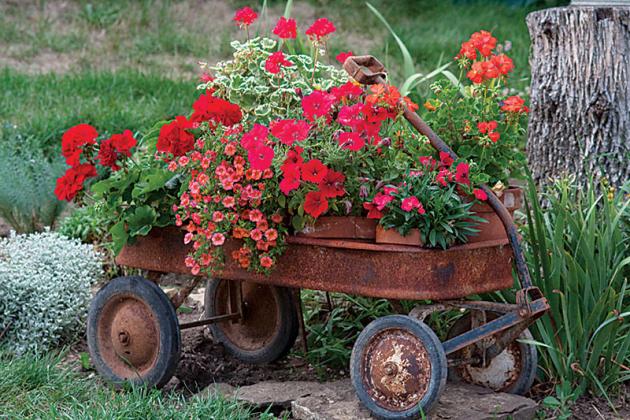
From the Eunice Bulb And Blossom Club
Companion planting involves growing plants together for specific benefits. Benefits involve attracting good bugs to manage the bad bugs, enhance plant growth and vegetable production, increase flavor of certain vegetables, attract beneficial pollinators and prevent disease.
Dill is a good herb companion; plant next to asparagus, onions, cucumbers, lettuce, cabbage, and broccoli. It attracts ladybugs, bees, wasps, butterflies, and other pollinators to your garden. Dill also repels aphids, some mites, and other harmful insects.
Basil is the best companion plant for tomatoes. The strong smell of basil confuses many pests like aphids, spider mites, and tomato horn/army worms. Basil also improves the flavor of tomatoes and is a good companion plant for peppers and root vegetables. Growing basil along with marigolds in a vegetable garden creates a powerful protective duo.
Peppers do better when surrounded by sweet alyssum. Alyssum lures pests away from a pepper crop and is beautiful in a garden. Plant the alyssum a few weeks in advance of planting peppers.
Mint is beneficial to squash, cabbage, carrots, and collard greens. It helps deter carrot root flies, cabbage flies, aphids, beetles, and caterpillars. Plant mint in a container to keep it from growing out of control. Bury the container in the garden bed to keep it level with vegetables.
The scent of catnip repels harmful bugs like ants, aphids, and beetles. It even repels weevils and small animals like mice. Use catnip as a perimeter plant for the garden to keep out pests and small critters.
Aphids cannot stand garlic. Plant rows of potatoes between rows of garlic which will function as a pungent bodyguard. Garlic’s strong odor also repels deer and small animals that come to your garden to feast.
In addition, sulfur compounds in garlic eliminate fungus. Plant near strawberries, tomatoes, and roses.
Growing nasturtiums next to kale cabbage and broccoli will lure hungry caterpillars away from these crops.
Find us on Facebook, Bulb and Blossom Garden Club.
